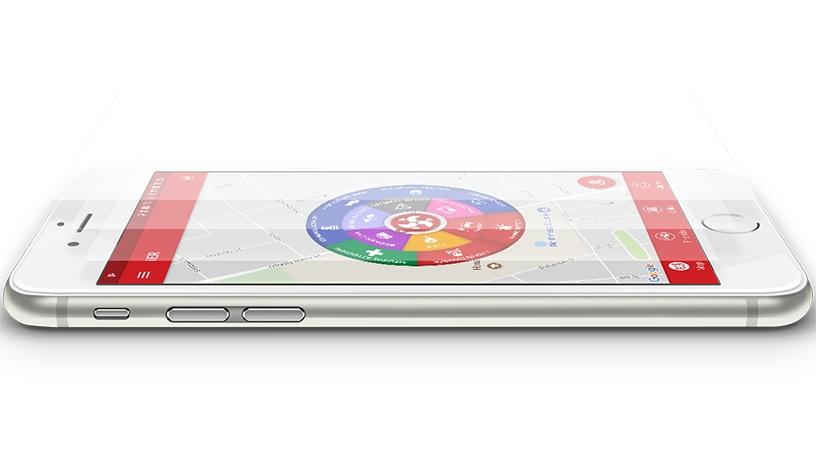
The iER (Integrated Emergency Response) mobile app hopes to help South Africans in crisis situations by connecting them to an extensive network of emergency responders, as well as alerting selected friends and family.
The app, developed by Affinity Enterprises, provides emergency services with vital information on the person in distress, such as their blood type, medical aid, private security company and next of kin. It also provides exact GPS co-ordinates of the user's smartphone and directs how to get there fastest.
Inside the app, there are several SOS buttons for different emergencies, such as medical attention, broken car, hijacking and 'stuff on fire'. Once pressed, the user is connected to a 24-hour call centre, manned by emergency-trained staff, and the appropriate service is sent out.
Thousands of emergency services across the country are connected to the call centre, including ambulance services, animal welfare, armed response, counselling, crime scene clean-up, electricians, fire stations, hazmat, locksmiths, plumbers, poison control, police, roadside assistance, search and rescue, towing, and veld fire management.
Launched in 2016, the app has since been downloaded close to 92 000 times.
"Too often, as an emergency arises, people don't have immediate access to the exact service provider they need," says Paul McNamee, GM of Affinity Enterprises.
"This is so much more than a panic button and it ensures that in the event of a fire, kidnapping, motor vehicle accident, hijacking, potential drowning, even bullying and assault, being trapped in protest action, criminal action, or other disasters that occur too often in South Africa, help is readily available through iER."
He says the call centre deals with about 200 legitimate alerts for which services are dispatched each week.
The service is free to use for anyone. Affinity Enterprises funds the call centre staff and other overheads to keep the service free.
However, iER only assists with dispatching the closest emergency response service. Payment for any service used is between the service provider and the client/patient.
The company recently launched an insurance product, ranging from R59 to R169 per month, which is a membership to iER. The benefits for members include priority at the iER call centres, a hospital stabilisation deposit of up to R75 000 per event, emergency casualty room stabilisation of up to R12 500 per event, and 24-hour telephonic medical advice.
The aim of launching the product is to use those funds to eventually fund the iER overheads to keep the app and service free.
According to the South African Private Ambulance and Emergency Services Association, in October 2016, SA had one advanced life support (ALS) provider per 17 825 members of the South African population, compared to one ALS per 1 358 members of the US population and one per 2 768 members of the population in the UK.
The creators of the iER app say immediate response in emergency situations is critical, and sometimes that response will come from the people in the community. iER has built-in a group feature which allows users to pre-select the community members, friends or family they would like alerted in different situations.
For example, a user could create a neighbourhood watch group on the app, and if there is a home invasion in the area, when they press the criminal activity SOS button, an alert would be sent out to the neighbourhood watch group as well as the police and armed response.
Or if the user's car broke down on the side of a freeway at night, they would press the broken car SOS button and an alert would be sent to their close family and friends group, as well as a tow-truck driver. In this situation, the user's loved ones could use the GPS co-ordinates sent with the alert to track their friend to make sure they get home safely, or drive to help if they are close by.
For this feature to work, each member of the group has to download the app and activate the free service.
The iER app is available for free download on the Google Play Store as well as the Apple App Store.
Two other local apps, Aura and Namola, also allow users to contact emergency services through the touch of a button and use the phone's GPS co-ordinates to track the user in trouble.
Aura is an armed response technology platform which provides customers with on-demand, geographically-variable security services. When an alert is received from a customer's mobile app, Aura immediately pairs the client to one of its listed independent armed reaction companies in SA.
Aura recently partnered with Uber in South Africa to integrate its technology into drivers' apps.
Namola, which recently signed a similar deal with Uber competitor Taxify, is a free crime response app that allows users to share their GPS coordinates, name and nature of the emergency with a 24/7 response call centre.
Share